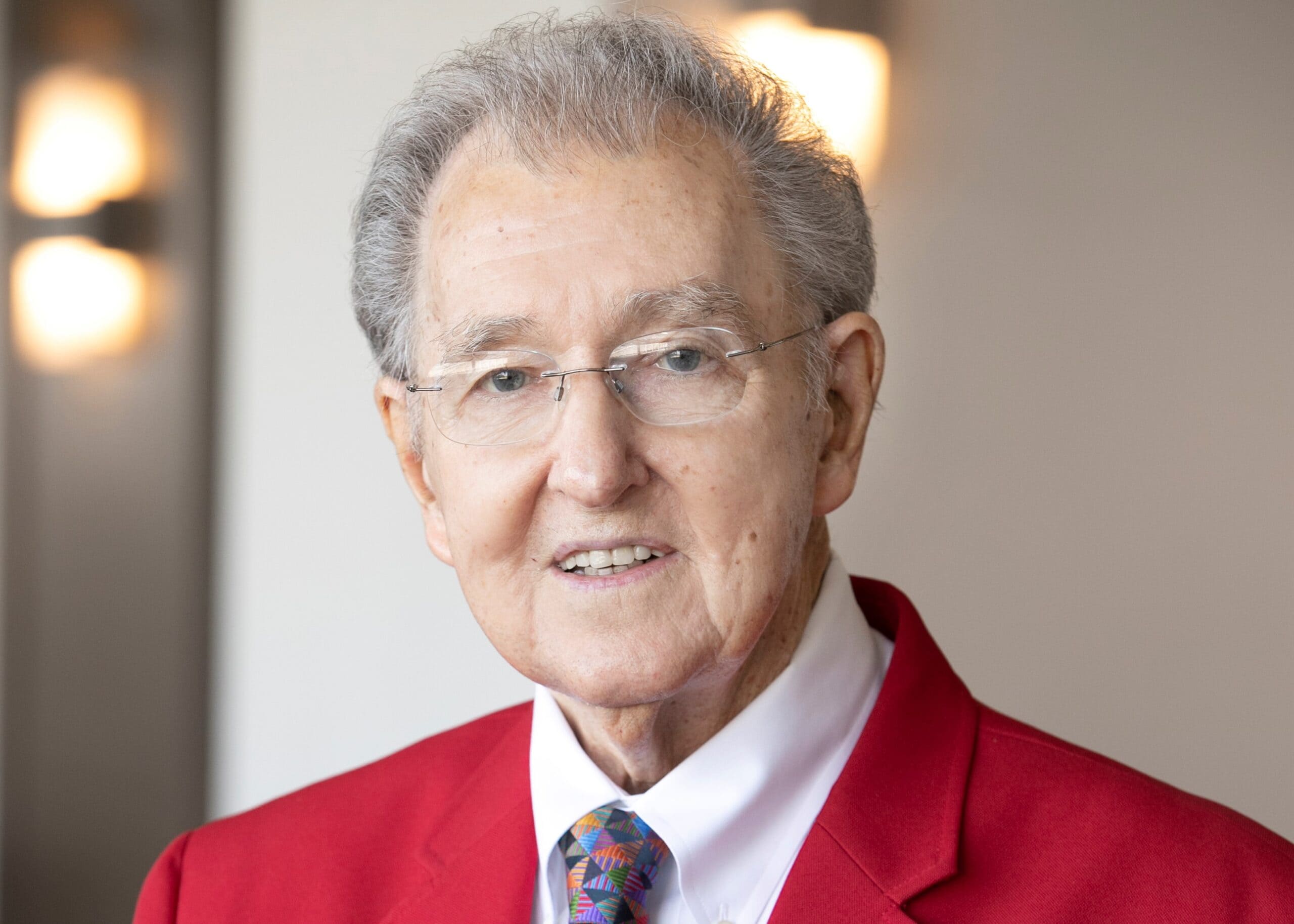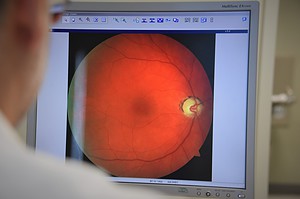Humble Gift Supports Jones Eye Institute’s Work in South Arkansas
| Bill Humble considers himself a decisive person. Whether it is business or personal, he doesn’t ruminate too long over an issue, particularly where he sees an opportunity or need. It was Humble’s decisiveness that brought the Tennessee native to Arkansas, helped create many of his businesses and eventually fostered his philanthropic spirit for the University of Arkansas for Medical Sciences (UAMS).
After four years in the U.S. Air Force, largely serving in East Asia, Humble planned to move to Hong Kong to take a job with CAT Airline. However, while visiting his sister-in-law in Little Rock, she convinced him to stay in Arkansas to pursue work.
“My sister-in-law was quite insistent on me sticking around, essentially telling me that I would end up a bum if I moved to Hong Kong,” said Humble. “So, I stayed a night in Arkansas and never left.”
Humble’s first of several careers in Arkansas was working in the insurance industry, initially selling policies for a company but eventually creating his own agency, later selling it and retiring at age 35. He also worked as a lobbyist for companies in Arkansas.
His next venture presented itself when his wife, Liane “Lee” Humble, inherited her father’s tie company in Little Rock, which she sold. When the company eventually went bankrupt, Humble decided to buy all the tie-making equipment at auction and, in an instant, he was in the necktie manufacturing business.
“We called the company Le-Bil’s, as in Lee and Bill, and we hired back all the ladies that were working for the company,” said Humble. “Our factory was located on Patterson Avenue in south Little Rock, and soon we were selling ties in three other states.”
Humble eventually sold Le-Bil’s to the Tandy Corporation (best known for its personal computers and operating RadioShack) in Fort Worth, Texas, yet he continued to manage Le-Bil’s until he again decided to retire. However, retirement didn’t stick, and Humble eventually went into the storage unit business, opening facilities in Little Rock and Fort Smith.

Megan K. Shirey, O.D., (left), Paul H. Phillps, M.D., and Sami H. Uwaydat, M.D., view readings from an eye screening machine.Andrew Vogler
Over the years, Humble became more acquainted with UAMS, eventually assuming a philanthropic role where he saw a need.
Humble is a longtime friend of James Y. Suen, M.D., professor in the Department of Otolaryngology–Head and Neck Surgery, and the two enjoy golfing together when they can. However, the relationship deepened when one of Humble’s family members was treated for cancer in Jackson, Mississippi, and Suen volunteered his expertise, advising the doctor overseeing the treatment. To show his gratitude and to help support Suen’s work, Humble began making philanthropic contributions to the UAMS Winthrop P. Rockefeller Cancer Institute.
Humble became familiar with the UAMS Harvey & Bernice Jones Eye Institute after experiencing vision issues. Also, due to complications caused by diabetes, a family member soon required treatment, and Humble recommended UAMS. While touring the Jones Eye Institute’s low vision clinic, Humble was shown a map of the regions of Arkansas that had access to ophthalmic photography, which is equipment used to identify ocular issues. Humble noticed that the machines were not available in south Arkansas.
“I saw that there were machines in all areas of the state except in south Arkansas, and I knew for certain that they needed help with issues caused by diabetes,” said Humble. “I asked why the southern part of the state didn’t have access to this equipment, and they said it was an issue of funding, so I offered to take care of that obstacle.”
Humble made a $16,000 donation that funded the purchase of a Zeiss VISUCAM®NM/FA.
Diabetes is a leading cause of blindness, and Arkansas has one of the highest incidences of diabetes in the country, affecting more than 340,000 Arkansans — or more than 11% of the population. Early detection and treatment are essential to prevent blindness, yet fewer than half of diabetics get an eye examination.
“The screening machine donated by Mr. Humble allows primary care physicians to obtain a digital image of the retina in their office,” said Paul H. Phillips, M.D., professor and chair of the Department of Ophthalmology and the director of the Harvey & Bernice Jones Eye Institute. “This image is reviewed by ophthalmologists at the Jones Eye Institute, enabling the early detection and treatment of diabetic retinopathy, which therefore reduces blindness. These machines regularly detect patients with diabetic retinopathy. Thanks to Mr. Humble’s gift, patients who would have gone blind are identified, treated and now have normal vision.”
Humble and his family have been pleased with their experiences at UAMS, and he believes that Arkansans should do more to support the institution.
“Through the years, we’ve received great treatment at UAMS, and I’ve met a lot of amazing people along the way,” said Humble. “I firmly believe that people should support UAMS — it is a fantastic institution that has done a lot of for the people of Arkansas.”

